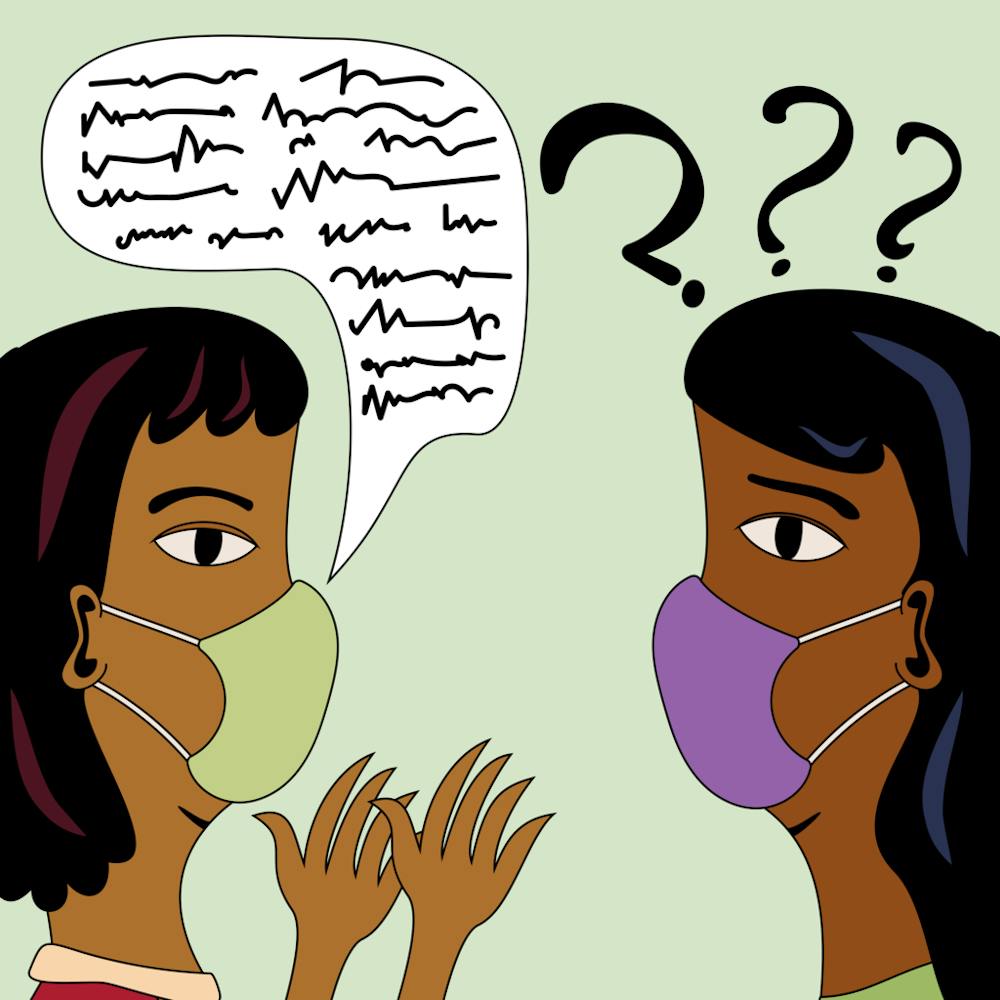It is said that “the eyes are windows of the soul,” but then again, whoever said that never had to make a habit of wearing face masks in the modern day. Even with the experience of wearing a mask almost every day for five months, I find it impossible to tell what kind of face a person is making just by looking at their eyes. I second–guess what kind of expression people are making underneath their masks as I see their eyes crinkle either at the onset of a smile, the bright sun, or by something I may have said. The pandemic has created a new collective experience that would have felt ridiculous just last year.
This summer, my masks enjoyed more time sunbathing on the laundry racks than my pasty skin deprived of the warm sun. Now that the stay–at–home restrictions are being lifted and back–to–school season is approaching, we face a new problem: face–to–face interaction is not the same with two layers of woven fiber between.
Despite Penn’s choice to take the route of hybrid instruction, most classes will be held remotely. However, there are a handful of courses deemed “essential” that will be held in person. Even if these courses are in person, however, collaboration and discussion among students and instructors will likely look a lot less personal and interactive than what it used to be. It's valid to question whether the experience of communicating with a group will change as everyone sits in the classroom with a mask covering most of their face. With these precautions set in place, everyone seems to be asking whether students will be able to learn as effectively, as communication and comprehension will likely be affected.
The new restrictions that come with eating at a dining hall—a significant social experience that we took for granted—will heavily affect all first-years, as well as a good portion of older students. With distancing, how will students interact as they sit staggered down the long tables in Commons and Hill? With masks off during eating, will there be no conversation allowed? Is everything in Houston take–out? It is unclear what has been planned and what impromptu adaptations will be made to protect students and staff. Even then, there is no question that the social experience of eating with friends or meeting new people will be significantly altered. I’ll miss seeing the friendly smiles of the dining staff as they ask me, “Baby, what do you want today?” I just hope that they understand how grateful I am for the food and their presence without having to see my own smile.
Of course, it is important to mention the staple experience of walking down Locust Walk, crowded with students at the end of each hour after class. Whether it was stopping for a quick chat or sending a quick smile someone's way, it always helped the campus feel much smaller. It's sad to know we won’t be seeing the bustle for a while with a portion of the student body not returning to campus. For those of us returning, there will rarely be a need to walk down Locust with most instruction being conducted online. When we do, we’ll be surrounded by a sea of masks in replacement of familiar faces. We’ll probably be walking past friends without knowing they were there. We won’t be able to show the grin pasted on our faces from being reunited after the longest spring break in Penn’s history.
However, masks are hardly something to complain about. It might be the only thing giving us some guaranteed safety returning to campus: the only thing that makes our return to campus truly possible. Face masks—looking past their many inconveniences—are giving us an opportunity to reduce the severity of social distancing that wouldn’t have been possible otherwise.
Robert Redfield, director of the CDC said, “If everyone could wear a face covering over the next six weeks we could drive this [coronavirus] into the ground.” Although the CDC’s face–covering guidance is a recommendation, it should be treated as a requirement. The more we embrace face coverings, the sooner we can return to not wearing them 24/7. The more intensely I miss the animated conversations and not thinking about the number of people in my vicinity, the more I remind myself how important it is to be diligent about keeping my mask on. The more we hold each other accountable, the sooner we’ll be able to return these small but invaluable perks, which are integral to the Penn experience. I hope that masks are something that we never have to get used to.
We’ll struggle through the test trial of trying to function as a community during a pandemic together—masks on. Perhaps this sense of camaraderie is enough to understand how we’re all truly feeling, even with most of our faces concealed.

